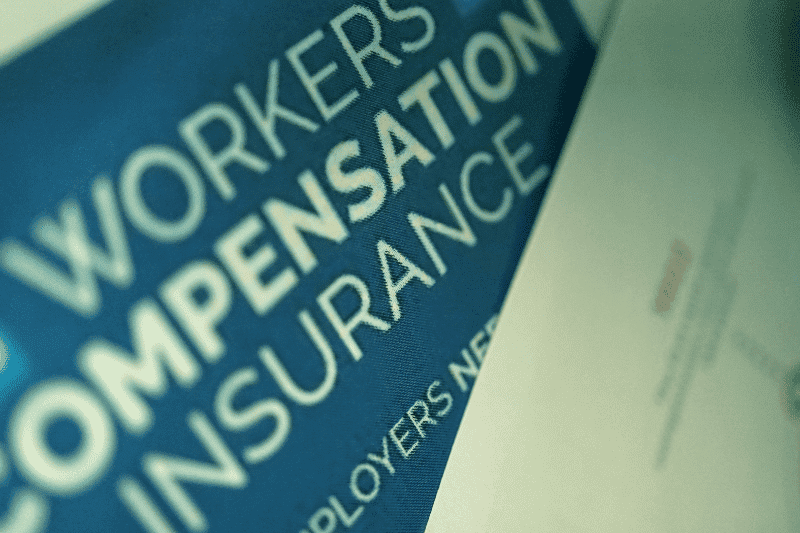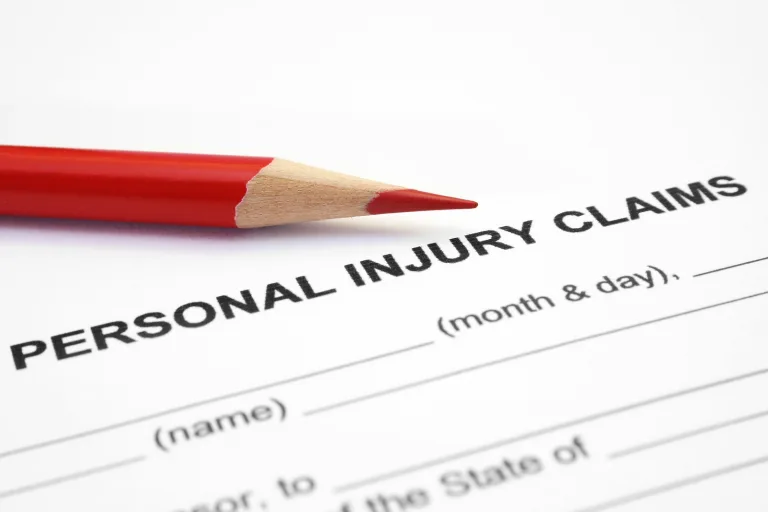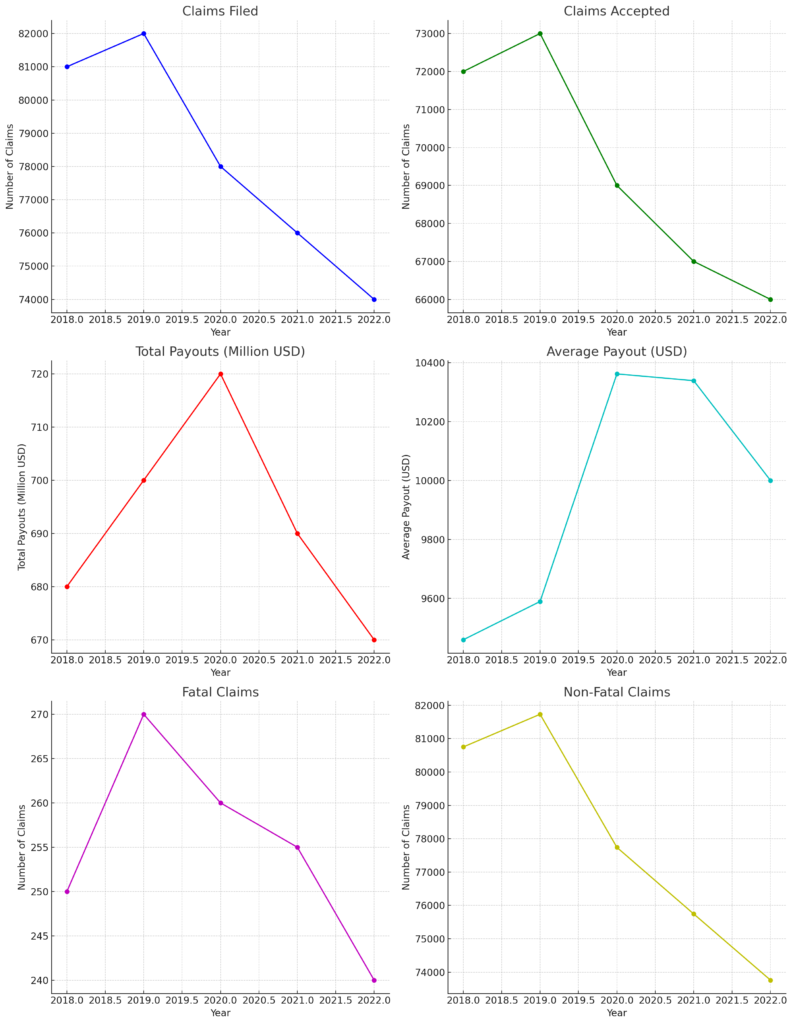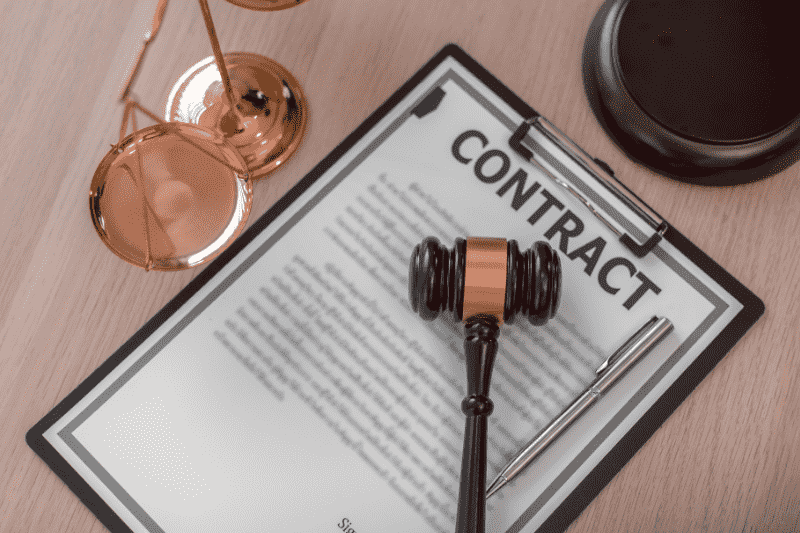Workers Compensation Lawyer in Florida
How a workers compensation attorney can help you
Florida Workers’ Compensation Attorneys Ready to Assist You
Have you been injured on the job in Florida? The aftermath of a workplace accident can be overwhelming, leaving you with mounting medical bills, lost wages, and uncertainty about your future. At Ehrlich & Naparstek, our experienced workers’ compensation lawyers are here to guide you through this challenging time. With offices in Boynton Beach and Stuart, we’re committed to serving injured workers across Florida, ensuring you receive the benefits and support you deserve.
The first disorienting moments after a workplace injury to the culmination of a compensation claim, the path ahead can seem fraught with uncertainties and complexities. The emotional, physical, and financial toll of an injury is often compounded by the bureaucratic intricacies involved in securing rightful compensation. This journey, although overwhelming, is not one that an injured worker has to walk alone.
Our approach begins with genuine empathy, a listening ear, and a commitment to understand the full breadth of each client’s experience. Our expertise is not just anchored in legal proficiency but also in the intricate knowledge of medical, rehabilitation, and recovery processes. This dual focus ensures that while we aggressively advocate for the best possible compensation, we’re also vested in the holistic recovery and well-being of our clients. We have a team led with the knowledge, wisdom, and experience to tackle even the most complex challenges and deliver exceptional results for our clients.
experienced BOARD-CERTIFIED ATTORNEYS
Ken Ehrlich, a distinguished legal expert with a Board Certified Workers’ Compensation License and decades of experience, emphasizes the critical importance of understanding your rights and responsibilities after a workplace injury in Florida. As a founding partner of Ehrlich & Naparstek, He brings over 30 years of expertise to the complex and ever-changing landscape of workers’ compensation law. Ehrlich’s approach is comprehensive, addressing not only the legal aspects but also the physical, emotional, and financial impacts of workplace injuries.
EMOTIONAL & FINANCIAL IMPACTS OF WORKPLACE INJURIES
Workplace injuries leave scars that go beyond skin deep. The trauma of the incident itself, compounded by the looming financial uncertainties and emotional distress, can be daunting. Recognizing this, our seasoned attorneys approach each case with an unmatched blend of compassion and expertise. At Ehrlich & Naparstek, we believe in not just securing compensation but also offering a shoulder of support, understanding the multifaceted challenges our clients face and assisting them in navigating through a complex and often unfair system.

PROTECTING YOUR FLORIDA EMPLOYMENT
When it comes to workers’ compensation, the law is designed to protect your employment status. If you are unable to work temporarily due to your injuries, you may be entitled to temporary disability benefits. If your injuries are severe and result in long-term or permanent disability, you may be eligible for permanent disability benefits. These benefits are designed to provide financial support and help protect your employment status while you recover or adjust to a new work situation.
CAN YOU BE TERMINATED FOR FILING A WORKERS’ COMPENSATION CLAIM?
Steps to Take After a Workplace Accident
Experiencing a workplace accident can be overwhelming, but knowing the right steps to take can ensure you receive the necessary care and protect your rights. Here’s what you should do immediately following a workplace accident:
1. Seek Medical Attention
- Immediate Care: If your injury is severe, call 911 or have someone take you to the emergency room. Your health and safety are the top priority.
- Follow-Up Care: Even if your injury seems minor, visit a medical professional as soon as possible. Some injuries may not show immediate symptoms but can become serious later.
2. Report the Incident
Notify Your Supervisor: Inform your employer or supervisor about the accident as soon as possible. Provide details about how, when, and where the accident occurred.
Written Report: Complete any required accident report forms and keep a copy for your records. This documentation is crucial for your workers’ compensation claim.
3. Document Everything
Accident Scene: If possible, take photos of the accident scene, any equipment involved, and your injuries. These can serve as valuable evidence.
Witnesses: Collect names and contact information of any witnesses to the accident. Their statements can support your version of events.
4. Follow Medical Advice
Treatment Plan: Follow the treatment plan prescribed by your healthcare provider. Attend all follow-up appointments and therapies.
Medical Records: Keep detailed records of all medical visits, treatments, and prescriptions. These documents are essential for your workers’ compensation claim.
5. File a Workers’ Compensation Claim
Claim Form: Complete the necessary workers’ compensation claim forms provided by your employer. Ensure you fill out the forms accurately and completely.
Timeliness: Submit your claim as soon as possible, as there are strict deadlines for filing workers’ compensation claims.
6. Keep Detailed Records
Injury Journal: Maintain a journal detailing your symptoms, pain levels, and how the injury affects your daily life. This can provide insight into the extent of your injury.
Expense Log: Track all expenses related to your injury, including medical bills, travel costs for medical appointments, and any other out-of-pocket costs.
7. Communicate with Your Employer
Stay Informed: Keep open communication with your employer about your injury, your recovery progress, and any work restrictions or accommodations needed.
Return to Work: Discuss your return-to-work options with your employer. If you are unable to perform your previous duties, your employer may provide modified or light-duty work.
8. Consult a Workers’ Compensation Attorney
Legal Advice: Consider consulting with a workers’ compensation attorney to understand your rights and ensure you receive the benefits you are entitled to.
Claim Assistance: An attorney can help you navigate the complex workers’ compensation process, gather necessary evidence, and represent your interests.
9. Monitor Your Recovery
Medical Progress: Regularly monitor your recovery and report any changes in your condition to your healthcare provider.
Work Capabilities: Keep your employer informed about your work capabilities and any ongoing medical restrictions.
10. Appeal if Necessary
Denied Claims: If your workers’ compensation claim is denied, don’t give up. You have the right to appeal the decision.
Legal Support: An attorney can assist you in the appeal process, helping you gather additional evidence and represent you in hearings.
What is covered by Workers compensation?
MEDICAL CARE: COMPREHENSIVE COVERAGE WITH CAVEATS
WAGE REPLACEMENT: NAVIGATING THE COMPLEXITIES
PERMANENT DISABILITY BENEFITS: FIGHTING FOR FAIR COMPENSATION
VOCATIONAL REHABILITATION: A DOUBLE-EDGED SWORD
Emotional & Financial Impacts of Workplace Injuries
Workplace injuries leave scars that go beyond skin deep. The trauma of the incident itself, compounded by looming financial uncertainties and emotional distress, can be daunting. Recognizing this, our seasoned attorneys approach each case with an unmatched blend of compassion and expertise. At Ehrlich & Naparstek, we believe in not just securing compensation but also offering support. According to the National Safety Council, workplace injuries cost the U.S. economy over $170 billion annually, underscoring the critical need for comprehensive legal aid. We understand the multifaceted challenges our clients face and assist them in navigating a complex and often unfair system.

Decoding the 120-Day “Pay and Investigate” Mandate
Gone are the days of ambiguous investigative periods. The new mandate enforces a strict 120-day framework, commencing from the day the initial benefit is released. This legislation ensures that claimants receive timely responses, propelling insurance carriers to operate both swiftly and meticulously. Our role? We make sure these timelines are adhered to, championing for our client’s right to a prompt resolution and ensuring the benefits they are legally entitled to recieve.
EMA Statute Evolution: Translating It For You
The utilization of Expert Medical Advisors (EMAs) witnessed a significant recalibration. Instead of the erstwhile almost automatic engagement, the decision now rests with the Judges of Compensation Claims. The intended outcome is a streamlined process, sidestepping redundant medical evaluations and facilitating expedited case conclusions. This discretion allows judges to resolve mediation disputes. At Ehrlich & Naparstek, we guide our clients through these nuances, ensuring they understand the implications and benefits of this revision.
Compliance and Compassion
We are wholeheartedly dedicated to supporting employees who’ve suffered on the job. Beyond just assisting in the recovery of lost wages, we actively help them find the essential medical care they require. We understand that a work injury doesn’t just impact one’s financial stability but also their physical and emotional well-being. That’s why our approach is comprehensive, ensuring that our clients not only receive the compensation they are entitled to but also the proper medical attention and support to aid in their recovery. Our goal is to help them get back on their feet, fully restored and ready to embrace their future after a work injury.”
At Ehrlich & Naparstek, we’re more than just legal representatives; we’re partners in your journey, dedicated to championing your rights and ensuring you’re equipped to navigate the evolving landscape of workers’ compensation in Florida.
TACKLING THE MOST FREQUENT WORKPLACE INJURIES IN FLORIDA
Our vast experience has acquainted us with the myriad ways injuries manifest in the workplace. From musculoskeletal injuries, often a result of inadequate training or lack of safety gear, to occupational diseases emerging from prolonged exposure to harmful environments, and traumatic injuries – each case presents unique challenges. We bring our wealth and experience of almost 3 decades to the fore, identifying potential hazards, tailoring strategies, and advocating relentlessly for our clients.
Musculoskeletal Injuries:
Occupational Diseases:
Traumatic Injuries:

Despite your best efforts, there may be challenges along the way when seeking workers’ compensation benefits in Florida. Understanding these potential obstacles can help you prepare and strategize accordingly. Here are some common challenges you may encounter in Florida:
Common Claim Obstacles:
Overcoming Hurdles:
Strategies for Success in Florida: Working closely with your workers’ compensation attorney, you can develop strategies to overcome obstacles and increase the likelihood of a successful claim. This may involve gathering additional evidence, obtaining expert opinions, or presenting a compelling case during trials, appeals or hearings. Receiving a denial for your workers’ compensation claim in Florida can be disheartening, but it does not necessarily mean the end of the road. Understanding the reasons for claim denials and knowing the appeal process can help you determine the next steps. Here’s what you need to consider in Florida:
Employer Obligations in the Florida Workers’ Compensation Process: What You Should Know
Employers in Florida have legal responsibilities when it comes to workers’ compensation. Understanding these obligations can help you navigate the process more effectively and ensure you receive fair treatment. Here are a few key points to be aware of in Florida:
Legal Responsibilities
Your Rights:
Florida Employer Obligations in the Workers’ Compensation
Process: What You Should Know
Legal Responsibilities:
Your Rights: Ensuring Fair Treatment:
WORKERS’ COMPENSATION STATISTICS IN FLORIDA
Understanding the landscape of workers’ compensation claims in Florida can provide valuable insights for employees and employers alike.
The infographic below provides a comprehensive look at key workers’ compensation statistics in Florida from 2018 to 2022. This visual representation highlights important trends and figures that can help both employees and employers understand the landscape of workers’ compensation in the state.
Claims Filed and Accepted
Over the past five years, the number of claims filed annually has ranged from 74,000 to 82,000, with a slight decline observed in recent years. Correspondingly, the number of claims accepted each year has remained between 66,000 and 73,000, indicating a consistent acceptance rate of workers’ compensation claims.
Total Payouts and Average Payouts
Total payouts in workers’ compensation have fluctuated, peaking at $720 million in 2020 and showing a downward trend to $670 million by 2022. The average payout per claim also saw a peak in 2020, reaching $10,362, before slightly decreasing to $10,000 in 2022. These figures reflect the financial scope of workers’ compensation claims and the importance of adequate compensation for injured workers.
Fatal and Non-Fatal Claims
The number of fatal claims has remained relatively stable, with a slight decrease from 270 in 2019 to 240 in 2022. Non-fatal claims, which constitute the majority of workers’ compensation cases, have seen a gradual decline from 81,730 in 2019 to 73,760 in 2022. This trend underscores the ongoing need for robust workplace safety measures and effective compensation systems.

These figures illustrate the significant impact of workers’ compensation on the workforce and underline the necessity for adequate legal support. At Ehrlich & Naparstek, we are dedicated to ensuring you receive the compensation you deserve.
The Next Course of Action When Your Workers’ Compensation Claim is Rejected in Florida
1. Understanding the Reason:
Why Claims are Denied in Florida: Claims may be denied due to various reasons, such as insufficient evidence, missed deadlines, or disputes over the causal relationship between the workplace incident and your injuries. It’s crucial to understand the specific reason for the denial, as it will guide your approach to the decades of experience.
2. hearing Process:
Contesting the Decision in Florida: When your workers’ compensation claim is denied in Florida, you have the right to contest the decision. The hearing process typically involves filing a petition for benefits and submitting additional documentation, attending hearings, and presenting your case before an administrative law judge of compensation claims. Having an experienced workers’ compensation attorney by your side in Florida can greatly enhance your chances of a successful outcome by providing expert guidance, preparing strong arguments, and representing your interests throughout the process.

Contact Us For Your Workers’ Compensation Claim
If you’re ready to take the next step and secure the compensation you deserve, don’t hesitate to reach out to Ehrlich & Naparstek. Contact us today to schedule a consultation and let our dedicated team of workers’ compensation attorneys fight for your rights. By choosing Ehrlich & Naparstek for your workers’ compensation claim, you gain access to a firm with a strong track record of success. Our attorneys are led by a Board Certified Workers Compensation Specialist with almost 30 years in experience. We are well-versed in the intricacies of workers’ compensation laws and have a deep understanding of the local legal landscape. We strive to provide personalized attention to each client, taking the time to understand your unique circumstances and develop a tailored strategy to achieve the best possible outcome for your case.
clients have
confidence in us
At Ehrlich & Naparstek our clients’ satisfaction is our top priority. We pride ourselves on delivering exceptional legal services and achieving favorable outcomes. But don’t just take our word for it—see what our clients have to say!
MEET YOUR
WORKERS COMPENSATION ATTORNEYS

Get to know Matt & Ken the attorneys who will be by your side every step of the way. Click on the profiles below to learn more about each of our dedicated team members.
Workers Compensation In Florida FAQ's
Answers from Ehrlich & Naparstek Personal Injury Lawyers
Get answers to the most frequently asked questions workers compensation from Ehrlich & Naparstek Personal Injury Lawyers. Learn about your legal rights, the claims process, and how to handle insurance companies effectively.
What is Workers' Compensation?
Workers' compensation is a state-mandated insurance program that provides benefits to employees who suffer job-related injuries or illnesses. In Florida, this program is designed to cover medical expenses, a portion of lost wages, and rehabilitation costs for employees injured on the job.
Who is Eligible for Workers' Compensation in Florida?
Most employees in Florida are covered under workers' compensation. Employers with four or more employees, including both full-time and part-time workers, are required to carry workers' compensation insurance. There are specific requirements for certain industries:
- Construction businesses must have coverage for every employee.
- Agricultural businesses with six or more regular employees and/or twelve or more seasonal workers who work more than 30 days must also provide coverage.
How Do I File a Workers' Compensation Claim in Florida?
- Report the Injury: Inform your employer immediately after the injury occurs or as soon as you become aware of a work-related illness.
- Seek Medical Treatment: Your employer or their insurance carrier will provide you with an authorized medical provider.
- File a Claim: Your employer is responsible for reporting your injury to their insurance company. You can also file a claim with the Florida Division of Workers' Compensation. For more details, visit the Florida Division of Workers' Compensation.
What Benefits Are Available Under Workers' Compensation?
Workers' compensation covers all necessary medical treatments related to the injury or illness, including doctor visits, surgeries, physical therapy, prescriptions, and travel expenses for medical appointments.
Wage Replacement Benefits
If you are unable to work due to your injury, you may be entitled to wage replacement benefits:
- Temporary Total Disability (TTD): If you cannot work at all while recovering, you may receive 66 2/3% of your average weekly wage.
- Temporary Partial Disability (TPD): If you can return to work but earn less than 80% of your pre-injury wages, you may receive a portion of the difference.
- Permanent Total Disability (PTD): If you are permanently unable to work, you may receive benefits for life.
Impairment Benefits
If your injury results in a permanent impairment, you may receive impairment benefits based on the severity of the impairment and your pre-injury wages.
Death Benefits
If a worker dies due to a work-related injury or illness, their dependents may receive death benefits, including funeral expenses and financial support.
What Should I Do If My Workers' Compensation Claim Is Denied?
If your claim is denied, you have the right to dispute the decision. Steps to take include:
- Request a Reconsideration: Contact the insurance company to review the denial.
- File a Petition: You can file a petition for benefits with the Florida Division of Workers' Compensation. More information is available at the Office of the Judges of Compensation Claims.
How Long Do I Have to File a Workers' Compensation Claim?
In Florida, you must report your injury to your employer within 30 days of the incident. Failing to do so may result in losing your right to benefits. You also have two years from the date of injury to file a formal claim.
Can I Choose My Own Doctor for a Workers' Compensation Claim?
Generally, you must see a doctor authorized by your employer's workers' compensation insurance. If you are not satisfied with the care, you may request a one-time change of physician, but the new doctor must also be authorized by the insurance company.
What Happens If My Employer Does Not Have Workers' Compensation Insurance?
- Employers who fail to provide required workers' compensation coverage can face severe penalties. Employees may report such employers to the Florida Division of Workers' Compensation.
How Are Wage Replacement Benefits Calculated?
- Wage replacement benefits are typically calculated as a percentage of your average weekly wage (AWW) prior to your injury. The calculation takes into account your earnings over the 13 weeks prior to your injury.
What Should I Do If My Employer Retaliates Against Me for Filing a Workers' Compensation Claim?
Retaliation for filing a workers' compensation claim is illegal. If you experience retaliation, such as termination or demotion, you can file a complaint with the Florida Commission on Human Relations.
Can Independent Contractors Receive Workers' Compensation Benefits?
Independent contractors are typically not covered under workers' compensation laws. However, misclassification issues may arise, and in some cases, contractors might be deemed employees and eligible for benefits.
In Florida, there is a 7-day waiting period before wage replacement benefits begin. If your disability lasts more than 21 days, you may be compensated for the initial 7 days.
How Long Can I Receive Workers' Compensation Benefits?
The duration of benefits depends on the nature and extent of your injury. Temporary benefits can last up to 104 weeks, while permanent benefits depend on the degree of impairment and the type of disability.
Can I Receive Workers' Compensation Benefits if I Am Partially at Fault for My Injury?
Yes, workers' compensation is a no-fault system, meaning you can receive benefits regardless of who was at fault for your injury, as long as it occurred in the course of employment.
Florida Cities We Serve for Work Injury Cases
DEDICATED REPRESENTATION IN FLORIDA'S MAJOR METROPOLITAN AREAS
At Ehrlich & Naparstek, we offer comprehensive legal solutions across a broad spectrum of personal injury areas, ensuring our clients receive the dedicated and expert representation they deserve. Our seasoned attorneys are committed to championing the rights of injury victims and securing the compensation they are entitled to. Below is an overview of the key cities and each case type we service in Florida.
FLORIDA CASES TYPES & CITIES WE SERVICE
Dedicated Representation in Florida's Major Metropolitan Areas
Schedule A Free Consultation With A Workers' Compensation Lawyer
Our Florida Personal Injury Lawyers Are Here To Help. Call Us Today.
Contact Form
Essential Workers Compensation Tips
Guidance from Ehrlich & Naparstek Personal Injury Lawyers
Discover valuable tips and insights from Ehrlich & Naparstek Personal Injury Lawyers to navigate the complexities of personal injury cases. Whether you’ve been in an accident or need advice on dealing with insurance companies, our expert guidance will help you protect your rights and make informed decisions. Contact us 24/7 at (772) 842-8822 (Stuart) or (561) 687-1717 (West Palm Beach) to schedule an appointment.
Premises Liability: Holding Property Owners Accountable in West Palm Beach
Knowing your legal rights regarding premises liability is crucial in holding property owners accountable for accidents that occur on their properties. Premises liability is a legal
Car Accident Guide: What to Do After a Collision in West Palm Beach
Experiencing a car accident can be a traumatic and confusing event. Knowing your legal rights and the steps to take following a collision is crucial to ensuring your safety and sec
Bicycle Accidents: Your Rights and Legal Recourse in West Palm Beach
Bicycle accidents can be devastating, resulting in serious injuries and significant financial burdens. Knowing your legal rights and the steps to take after an accident is crucial
Slip and Fall Accidents: When Negligence Leads to Injury in West Palm Beach
Understanding Your Legal Rights Slip and fall accidents can happen anywhere, from grocery stores to sidewalks. These incidents often result from hazardous conditions and can lead t
Truck Accidents: Pursuing Compensation After a Collision in West Palm Beach
Truck accidents can be devastating, leading to severe injuries, extensive property damage, and significant financial burdens. Understanding your legal rights is crucial in these si
Motorcycle Accidents: Seeking Compensation for Injuries in West Palm Beach
Motorcycle accidents can be devastating, often resulting in severe injuries or even fatalities. Understanding your legal rights and the steps to take following an accident is cruci
Dog Bite Injuries: Your Rights and Seeking Compensation in West Palm Beach
Dog bite injuries can be traumatic, both physically and emotionally. Understanding your legal rights and the steps to seek compensation is crucial for recovery. This guide provides
Boating Accidents: Navigating Legal Waters After a Crash in West Palm Beach
Boating accidents can be devastating, often resulting in severe personal injuries or even fatalities. Understanding your legal rights and the steps to take after such an incident i
Pedestrian Accidents: Understanding Liability and Compensation in West Palm Beach
Pedestrian accidents can have devastating consequences, making it crucial to understand your legal rights and options for compensation. This article explores the key aspects of ped












